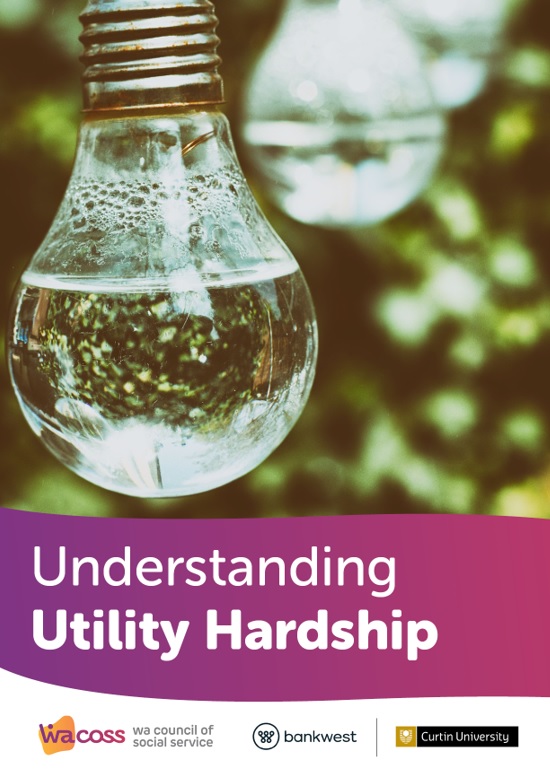Research shows struggling Western Australians skipping meals to pay utility bills
The Understanding Utility Hardship report, released today, has shown reducing spending on food and other grocery items is the most common tactic used by Western Australians struggling to keep up with surging utility bills.
Research undertaken by WACOSS and Bankwest Curtin Economics Centre found that more than three quarters of respondents who indicated they were often unable to pay their utility bill – electricity, water or gas – identified that cutting spending on food was a strategy they would likely use to cope.
Key recommendations from the report include:
- More flexible repayment solutions and early intervention for customers experiencing hardship.
- Replace the Energy Assistance Payment with a percentage-based primary energy concession and expand eligibility for water concessions to include people who hold a Health Care Card.
- Maintain public ownership of all utility companies.
- Develop a roadmap to transition households off gas.
Other key findings from the survey of 470 Water Corporation customers included:
- Disaster events, job loss or a decline in income, and serious illness were the most significant life events that contributed to utility hardship;
- Defaulting on other payments – such as mortgage repayments or one type of utility bill – were strong predictors of utility hardship;
- Households that cannot access savings or raise $4,000 in an emergency are 50 per cent more likely to be unable to pay their electricity or water bills than households that could;
- 60 – 66 per cent of respondents indicated they would likely discuss their options with the utility retailer; and
- 58 – 67 per cent of respondents indicated they would try to reduce usage or water, electricity and or gas even further.
The report also used data supplied by the Financial Counsellors Network and conducted interviews with financial counsellors to gain a more holistic understanding of the causes and consequences of utility hardship and whether current systems and safeguards are providing appropriate support.
WACOSS Deputy CEO Rachel Siewert said utility hardship was a significant contributor to financial stress in Western Australia.
“It’s very clear from our research that people want to be able to pay their utility bills and be free from the stress of accumulating these debts,” Siewert said.
“The issue is that some utility companies have very unrealistic expectations of individuals and households who are in extremely precarious financial situations, either because they’re living on income support or because rising cost of living pressures across a range of essential items has pushed them to breaking point.
“With fuel prices regularly going over $2 a litre again, interest rates continuing to rise and wages going backwards in real terms, utilities are one policy area where state government intervention can have a real and meaningful impact on people’s lives.
“The report found that the publicly-owned retailers provided the greatest level of support for households in hardship, going beyond the minimum required of them, and had built a strong relationship with support services. Keeping our electricity and water retailers in public hands means WA is in the ideal position to ensure fair and affordable access to these essential services.
“Flexible repayment solutions and early intervention, such as the Time Assist, Water Assist and Start Over programs offered by the Water Corporation, should be implemented across all utilities to minimise debt accumulation and proactively target customers who may be in hardship.
“We would also like to see the Energy Assistance Payment replaced with a percentage-based primary energy concession, and the expansion of eligibility for water concessions to include people who hold a Health Care Card.
“With a record $6 billion surplus, it is unconscionable that Western Australians are being forced to skip meals or go into debt simply to keep the lights on and the water running.”
This project was funded by the Water Corporation to support utility consumer representation and research, and the State Government of Western Australia (Energy Policy WA) as part of its grants process for consumer advocacy projects and research projects for the benefit of consumers of electricity and gas.
The Understanding Utility Hardship report is published in full on WACOSS’ website.
– ENDS – |
